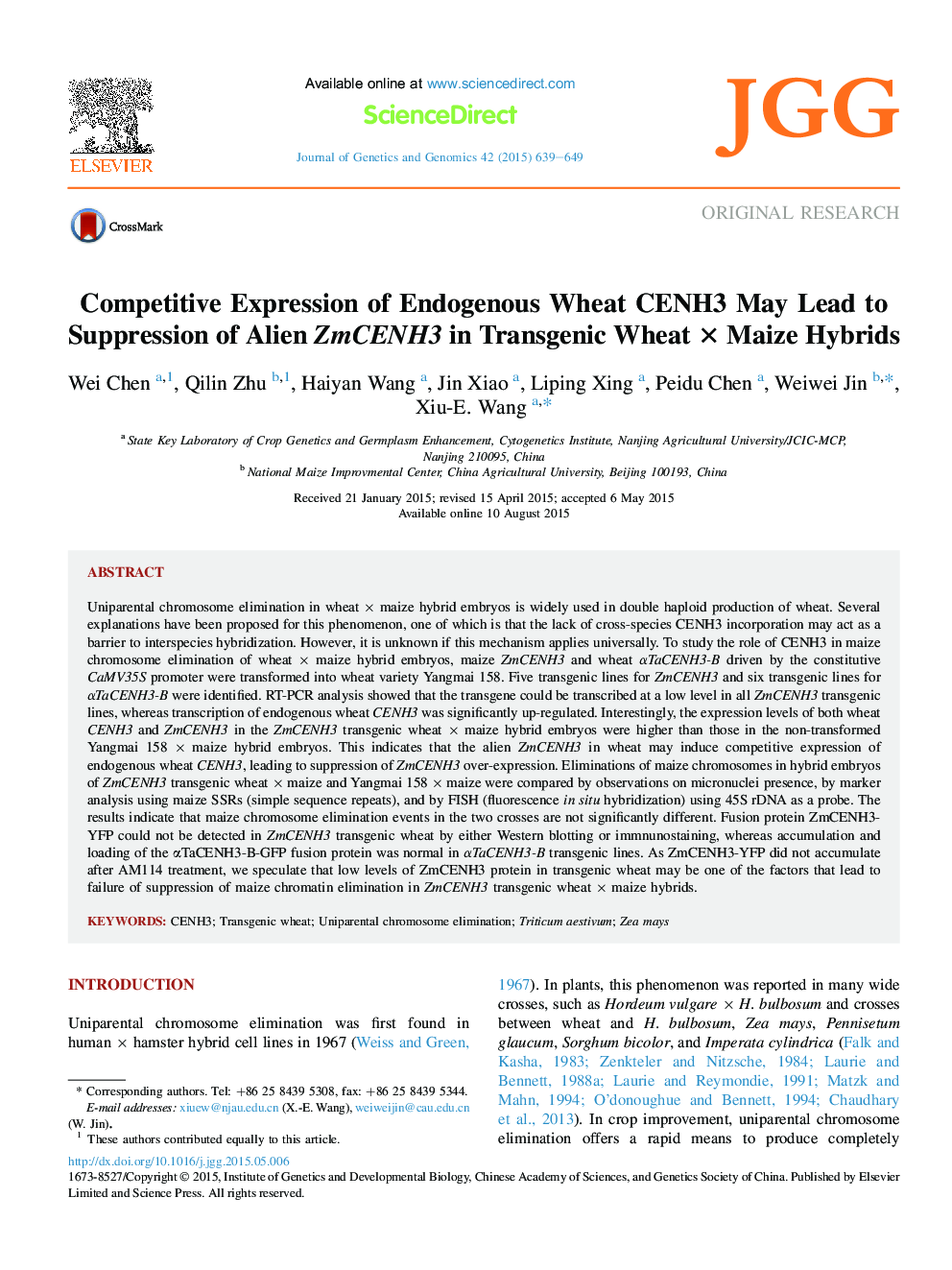| Article ID | Journal | Published Year | Pages | File Type |
|---|---|---|---|---|
| 2787365 | Journal of Genetics and Genomics | 2015 | 11 Pages |
Uniparental chromosome elimination in wheat × maize hybrid embryos is widely used in double haploid production of wheat. Several explanations have been proposed for this phenomenon, one of which is that the lack of cross-species CENH3 incorporation may act as a barrier to interspecies hybridization. However, it is unknown if this mechanism applies universally. To study the role of CENH3 in maize chromosome elimination of wheat × maize hybrid embryos, maize ZmCENH3 and wheat αTaCENH3-B driven by the constitutive CaMV35S promoter were transformed into wheat variety Yangmai 158. Five transgenic lines for ZmCENH3 and six transgenic lines for αTaCENH3-B were identified. RT-PCR analysis showed that the transgene could be transcribed at a low level in all ZmCENH3 transgenic lines, whereas transcription of endogenous wheat CENH3 was significantly up-regulated. Interestingly, the expression levels of both wheat CENH3 and ZmCENH3 in the ZmCENH3 transgenic wheat × maize hybrid embryos were higher than those in the non-transformed Yangmai 158 × maize hybrid embryos. This indicates that the alien ZmCENH3 in wheat may induce competitive expression of endogenous wheat CENH3, leading to suppression of ZmCENH3 over-expression. Eliminations of maize chromosomes in hybrid embryos of ZmCENH3 transgenic wheat × maize and Yangmai 158 × maize were compared by observations on micronuclei presence, by marker analysis using maize SSRs (simple sequence repeats), and by FISH (fluorescence in situ hybridization) using 45S rDNA as a probe. The results indicate that maize chromosome elimination events in the two crosses are not significantly different. Fusion protein ZmCENH3-YFP could not be detected in ZmCENH3 transgenic wheat by either Western blotting or immnunostaining, whereas accumulation and loading of the αTaCENH3-B-GFP fusion protein was normal in αTaCENH3-B transgenic lines. As ZmCENH3-YFP did not accumulate after AM114 treatment, we speculate that low levels of ZmCENH3 protein in transgenic wheat may be one of the factors that lead to failure of suppression of maize chromatin elimination in ZmCENH3 transgenic wheat × maize hybrids.
